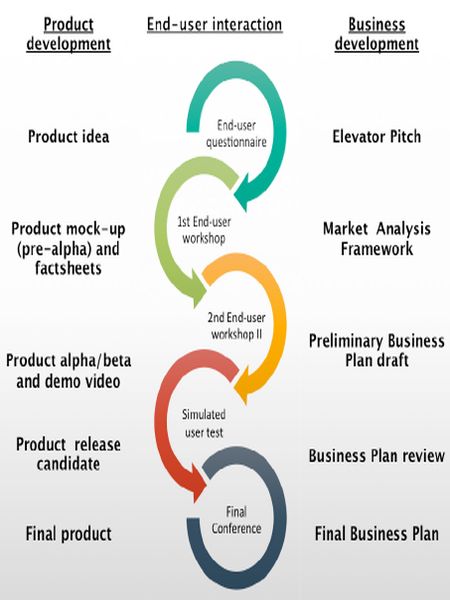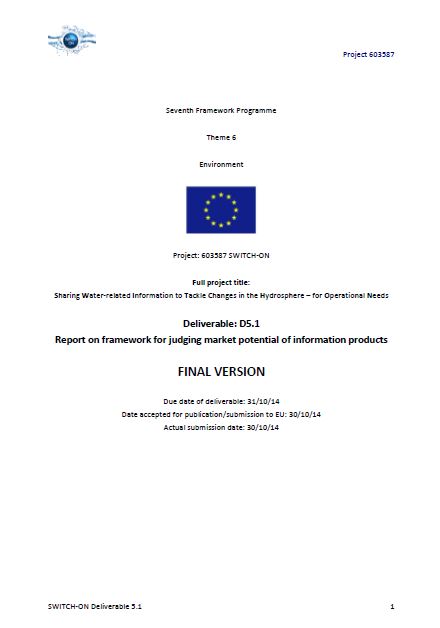Water touches virtually all societal and environmental domains. The knowledge domain is largely multidisciplinary. New water information and knowledge can thus lead to more efficient use of environmental services and better handling of environmental problems, including those posed by climate and environmental change.
The project SWITCH-ON explores and exploits the currently untapped potential of open environmental data to address water issues. Water information is of interest to many kinds of end-users, both within government and business as well as within civil society. SWITCH-ON will show the benefits achieved through the whole process chain. The project aims at re-purposing (re-using under different context) open data products into more water-dedicated and refined products. Those are considered to have high value and a broad impact on society.
Objectives
The main vision of the project is to ensure sustainable use of water resources and improve resilience to water related hazards. This should be reached through better governance, smart regulation, improved public services, efficient decision-making and business growth. This is based on new forms of collaborative research and innovative products and services.
SWITCH-ON aims to use open data for the implementation of:
- an innovative spatial information platform with open data tailored for direct water assessments,
- an entirely new form of collaborative research for water-related sciences,
- fourteen new operational products and services dedicated to appointed end-users,
- new businesses and knowledge to inform individual and collective decisions in line with Europe’s smart growth and environmental objectives.
While focusing on water, the project is expected to inspire a much broader knowledge domain and many different end-users to better address environmental and societal challenges through openness and collaboration.
Ecologic Institute in SWITCH-ON
Ecologic Institute leads work package 5 (WP5). WP5 will ensure that SWITCH-ON products enter new markets and have strong societal impacts in the areas of governance and different business sectors. It aims to analyse information availability (open data) for the information needs of different users, i.e., policy-makers, environmental managers, businesses and citizens. WP5 will analyse legislative, technical and market-based barriers to a greater exploitation of the products and provide business plans for opportunities in new markets across Europe.





